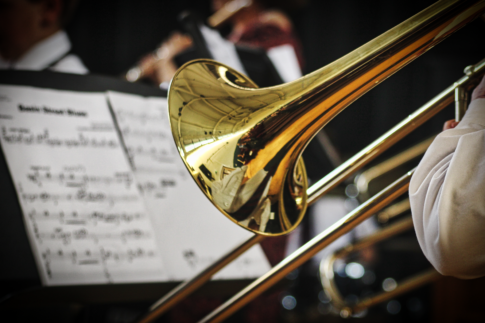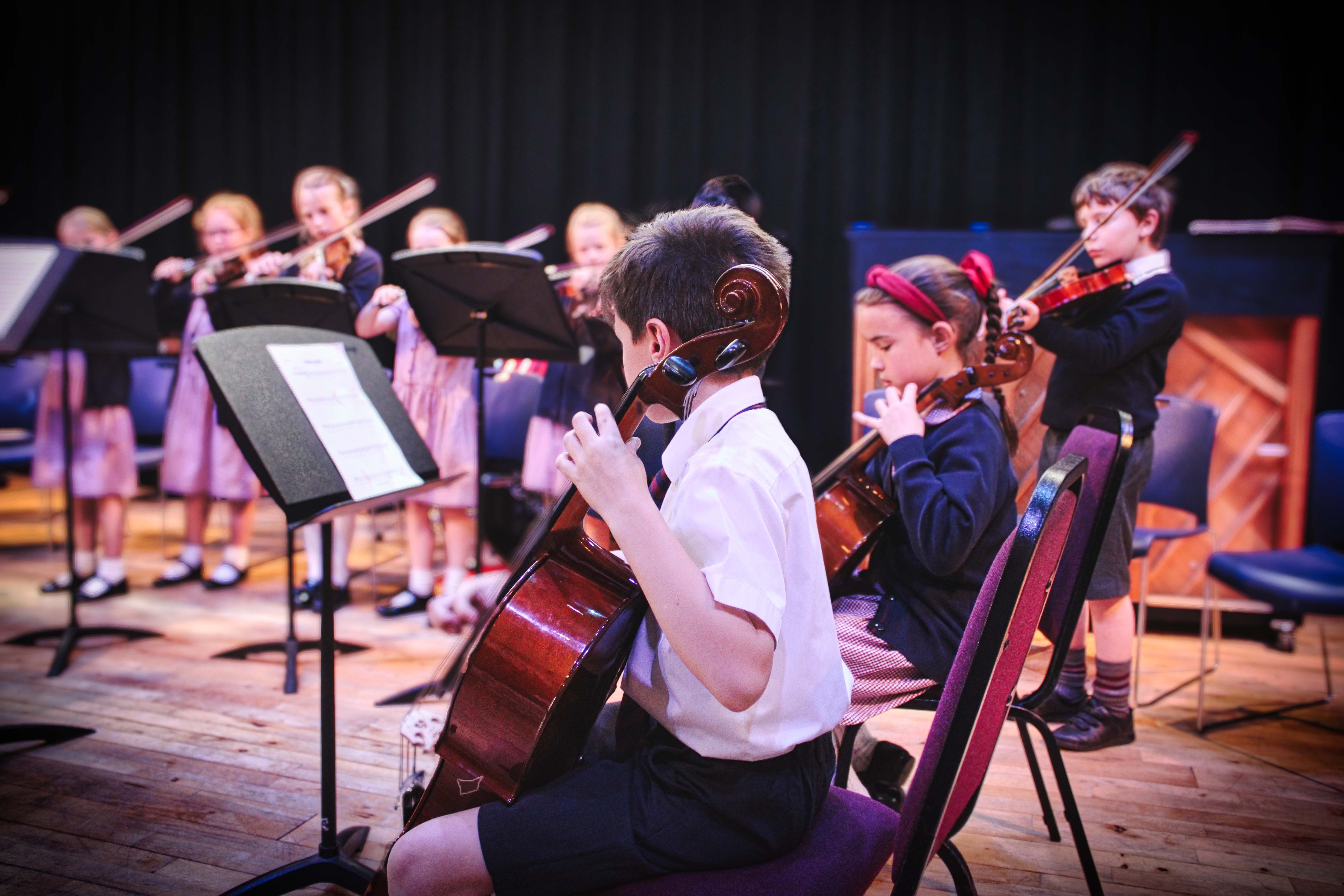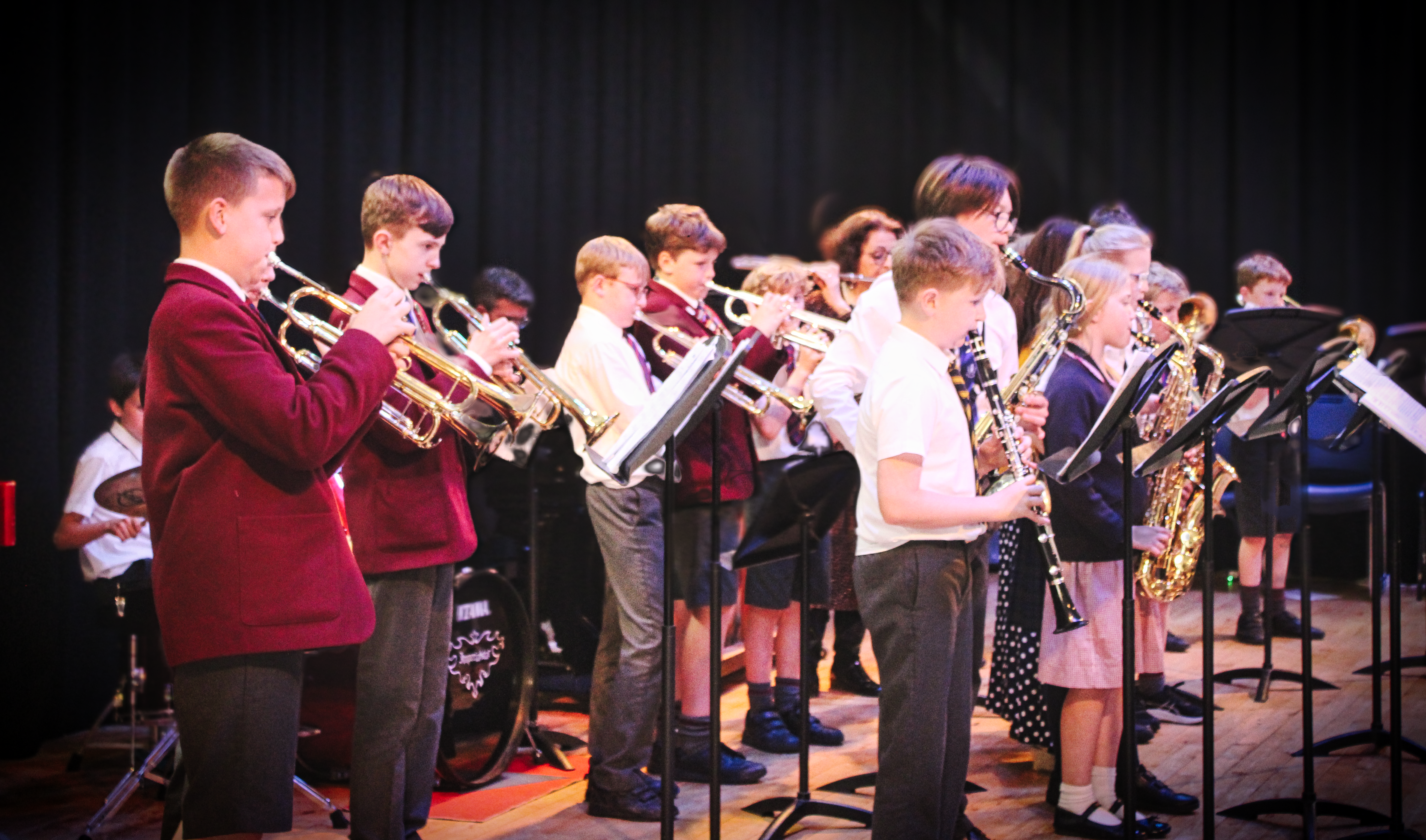The Benefits of Learning a Musical Instrument at Prep School
At Beechwood, around 300 pupils in the Middle and Senior Department (from Year 3 to Year 8) learn a musical instrument, with most also participating in the 30+ different musical ensembles that practise every week.
Obviously, as Music Teachers, we are passionate about encouraging children to take up learning a musical instrument, and there are numerous theories to support this enthusiasm – so, what are the benefits in doing so?
- Cognitive development: Learning a musical instrument involves developing cognitive skills such as problem-solving, spatial-temporal skills, and memory. These skills can improve a child’s overall cognitive development, which can have a positive impact on their academic performance. Learning to play a musical instrument requires you to use both the right and left part of your brain, therefore working your brain harder and improving your memory. Research shows that music stimulates the parts of the brain that are related to reading, maths and emotional development. Scientists have also found that musicians are extremely good at focusing and concentrating, and are very able to process many pieces of information simultaneously.
- Fine motor skills: Playing an instrument requires precise finger movements, which can improve a child’s fine motor skills and hand-eye coordination.
- Increased creativity: Playing music allows children to express themselves creatively and develop their own unique musical style.
- Wellbeing: Studies have shown that music can help to keep stress at bay, promoting wellbeing and a feeling of calm. Music has been proven to lower heart rate and blood pressure, which in turn lowers the stress hormone cortisol, therefore making us feel relaxed. Whilst just listening to music can help, research has shown that learning to play an instrument brings with it comfort and daily repetition which helps keep stress and anxiety away
- Emotional development: Learning a musical instrument can help children develop emotional awareness, empathy, confidence and self-esteem. Playing music can also be a healthy way for children to express their emotions. Added to this, playing an instrument in a public setting (when pupils are ready to do so), such as a concert, can help pupils feel confident in presenting their work in a non-academic context, which can have the knock-on effect of improving how they control their nerves when it comes to academic exams and assessments.
- A sense of achievement: There really is no greater feeling than finally completing a difficult task and being able to have it perfected. This feeling of self-achievement can filter onto other areas in your life and help you to accomplish more!
- Improved social skills: Learning a musical instrument often involves working with others, whether it’s playing in a band, orchestra, or ensemble. This can improve a child’s social skills, such as teamwork, communication, and collaboration.
- Cultural awareness: Learning to play an instrument can expose children to different types of music and cultures, which can broaden their understanding of the world.
- Lifetime skill: Learning a musical instrument is a skill that can be enjoyed for a lifetime. Children who learn to play an instrument at a young age may be more likely to continue playing into adulthood, which can provide a lifelong source of enjoyment and enrichment.
Perhaps most important of all is the fact that learning to play a musical instrument is FUN! Scientific proof of benefits aside, at Beechwood we encourage pupils to take up a musical instrument quite simply because it is fun to do so! Music engages and stimulates the brain, occupies time, and makes us happy in a way that more passive hobbies such as watching TV simply cannot!
A quote from the ‘Model Music Curriculum’ demonstrating the power of music:

Jane Lodge
Director of Music

 ">
">

